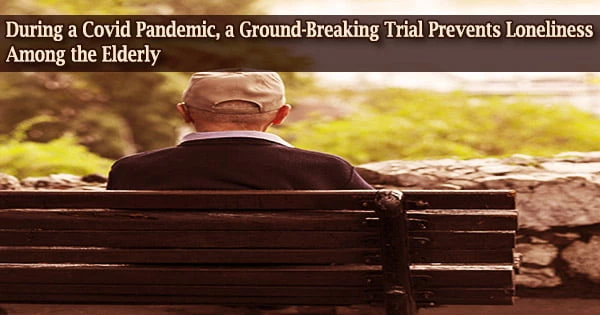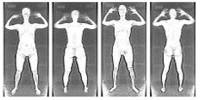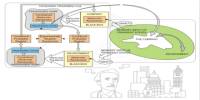According to the preliminary findings of a new study, a modest kind of talking therapy offered over the phone by trained support workers reduced loneliness among older persons who were alone during the epidemic.
People were contacted once a week and urged to keep their social contacts and follow a daily routine that comprised both regular and pleasant activities.
The BASIL-C19 (Behavioural Activation in Social Isolation) study’s intervention lasted eight weeks and was developed in collaboration with older persons who had direct experience of social isolation, loneliness, and depression during the pandemic.
The pandemic, as well as the limits enforced, has brought attention to the importance of mental health and social connections. Prior to the pandemic, the research found that 1.4 million older persons in England were lonely, with negative consequences for their mental health.
Loneliness and despair have increased after the pandemic, according to research, particularly among people who were self-isolated.
The psychological effects of forced isolation, disturbance of daily routines, loss of social interaction, and loneliness were foreseen by a group of top researchers and doctors who re-focused their research expertise to explore the psychological impact of the pandemic on mental health.
COVID-19 has unfortunately impacted on the mental health of older people. We know that social isolation can cause people to suffer from loneliness, low mood, and anxiety. In this study, we tested how we can maintain older people’s mental health during this difficult time.
Carolyn Chew-Graham
The team included academics from the universities of York, including Hull York Medical School, Leeds, Keele and Manchester, and Tees, Esk and Wear Valleys (TEWV) NHS Foundation Trust, in partnership with leading charity, AgeUK.
To tackle depression and loneliness, they devised a very brief telephone-delivered intervention. The offer of telephone contact was well received by the elderly, who regarded the intervention to be beneficial in maintaining daily routines and social contact.
The preliminary findings have now been published in PLOS Medicine, a respected medical journal. The researchers discovered indications of enhanced mental health, as well as a strong hint that loneliness rates are reduced significantly in the first three months.
A much larger study follow-up trial is currently recruiting at over 12 sites across England and Wales, based on these promising early results. The project, which will include around 600 older individuals, will be the largest of its kind to combat loneliness and despair.
The study was led from York by Professor Simon Gilbody, Director of the Mental Health & Addictions Research Group (MHARG) at the University of York and Hull York Medical School, and Professor David Ekers, Clinical Director for research and development at TEWV NHS Foundation Trust and Honorary Professor at the University of York.
Professor Gilbody said: “Our University-NHS partnership was ideally placed to respond to societal challenges of COVID-19. Older people and those with long-term conditions entered enforced isolation, and this was very disruptive to people’s lives.”
“We predicted increased rates of loneliness and depression for this vulnerable population, and we knew what might work to prevent this. Care in the NHS must be informed by the highest quality of evidence and we did not waste any time in deciding to set up a clinical trial to test this out.”
In terms of volume, rigor, and impact, the research conducted by the NHS is regarded as world-leading. The NHS has been in the forefront of figuring out how to best respond to the pandemic.
The pilot trial’s first results are now out, and there is growing evidence that it is possible to reduce loneliness while also potentially improving mental health.
Professor Carolyn Chew-Graham, a GP and leading researcher in the mental health of older people, based at Keele University added: “COVID-19 has unfortunately impacted on the mental health of older people. We know that social isolation can cause people to suffer from loneliness, low mood, and anxiety. In this study, we tested how we can maintain older people’s mental health during this difficult time.”
Professor David Ekers added: “We have been researching in this area for the past 10 years, and we are ideally placed to help establish ‘what works’ in maintaining good mental health during the lockdown.”
This is a fantastic collaboration between universities and the NHS to address COVID’s primary difficulties. Despite the lifting of limitations, many people remain socially isolated. The findings of our research program will be valuable in the future in combating the loneliness epidemic.
The study was financed by a £2.6 million grant from the National Institute for Health Research and was released two days after World Mental Health Day. The BASIL-C19 experiment was the first of its kind to examine the efficacy of a psychological intervention in maintaining population mental health during the pandemic.
















